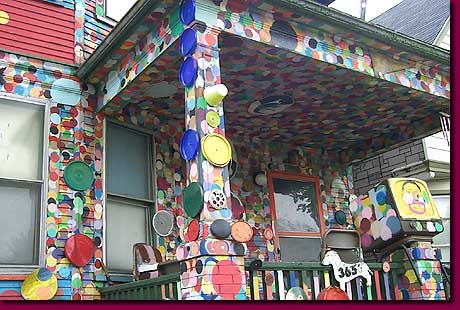Same S#it, Different Name
I came across a four-part series on the Atlantic Cities website about the birth of what author David Lepeska calls the Rebuild Era for cities. In the series he writes about some factors which are emerging as new trends in our industrial urban cores: 1) a growing reverse migration that's bringing former Rust Belt residents back to their cities of origin; 2) a renewed sense of civic engagement and DIY urbanism that is sparking new thinking and renewal; and 3) a move toward a more regenerative economy. From the article:
"Communities are finding a way to rebuild," says Nik Theodore, director of the Center for Urban Economic Development at the University of Illinois-Chicago. “We're seeing in U.S. cities a move to try to open up planning and decision-making and come up with new ideas.”
And:
We've seen some leaders shift to more sustainable efforts like technology and small-scale manufacturing. New hubs and clusters have begun to appear: craft beer in Chicago, water tech in Milwaukee, Internet startups and innovation in Detroit.
This is all well and good, but it's much ado about nothing.
The return migration happening in some cities is a real phenomenon. There is a growing number of Rust Belt ex-pats who have grown tired of the charade of the Sun Belt and are looking to return to their roots. Jim Russell from Burgh Diaspora is one of the biggest proponents of this I've seen on the blogosphere, and he recounts how this is transforming Pittsburgh.
But DIY urbanism? I have another word for that -- hustlin'.
For decades there have been city residents trying to make the best of their environment. Want examples?
Watts Towers, Los Angeles:

Heidelberg Project, Detroit:

The only thing different I see about the latest attempts to do this very thing is the age and profile of the new people doing it. It's been going on for some time with little recognition.
As for a regenerative economy, this comes to mind:

I really believe a regenerative economy can be a part of urban revitalization. Recycling items that become craftsman goods is great. Microbrewing craft beer is fabulous. Urban agriculture is necessary.
But if this was going to be a lynchpin for the renewal of our cities, it would have happened already.
All the above efforts are great at creating something out of nothing. But they offer little in the way of sustainability. Unless if by sustainable you mean post-apocalyptic.
The above efforts deserve recognition. But our cities need more, much more, from the private sector, local, state and federal governments, and the nonprofit community. And they need much more from the everyday people everywhere who feel they have little in common with the urban core that's much closer to them than they care to recognize.